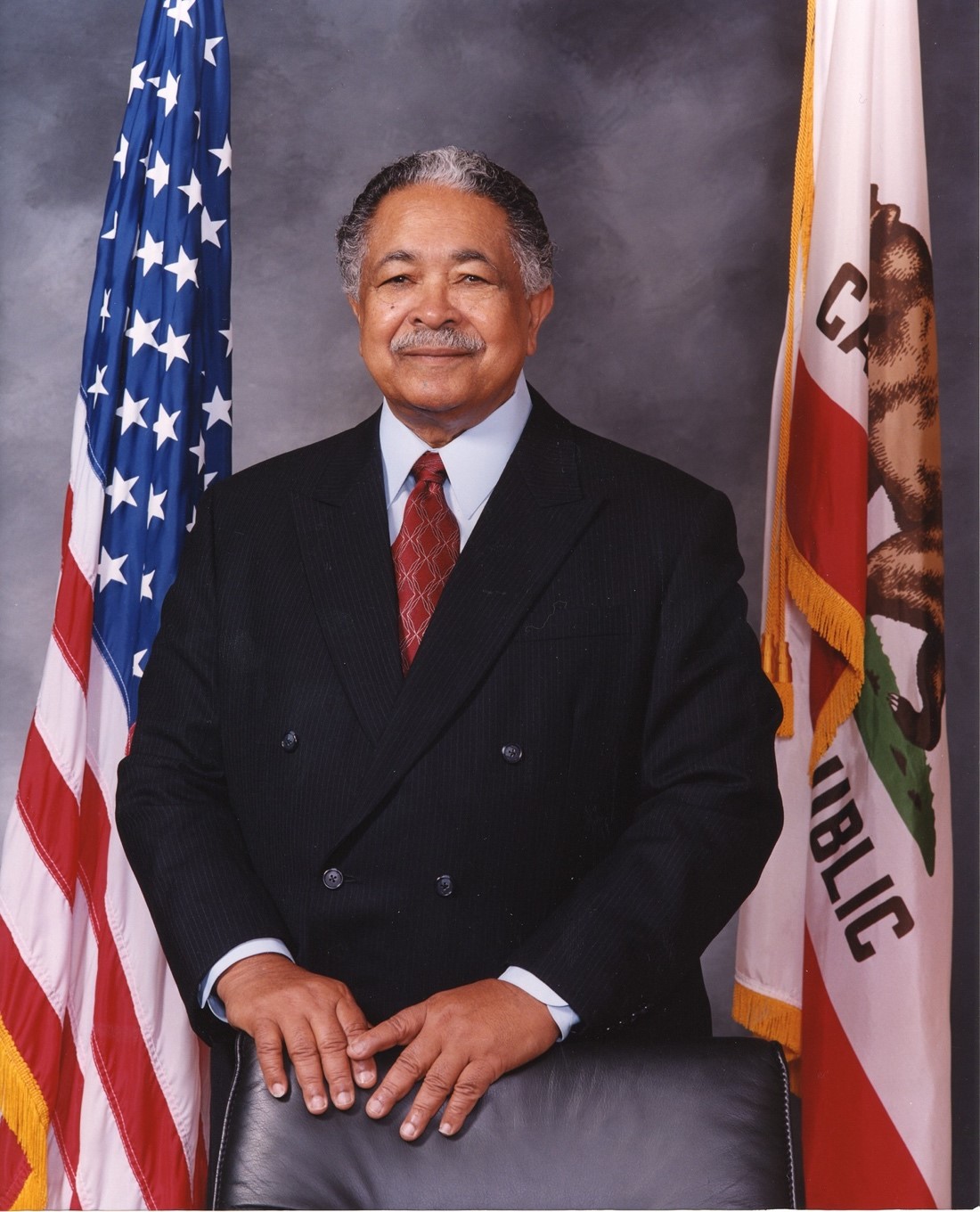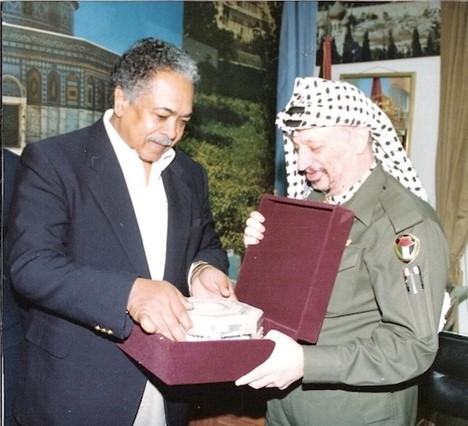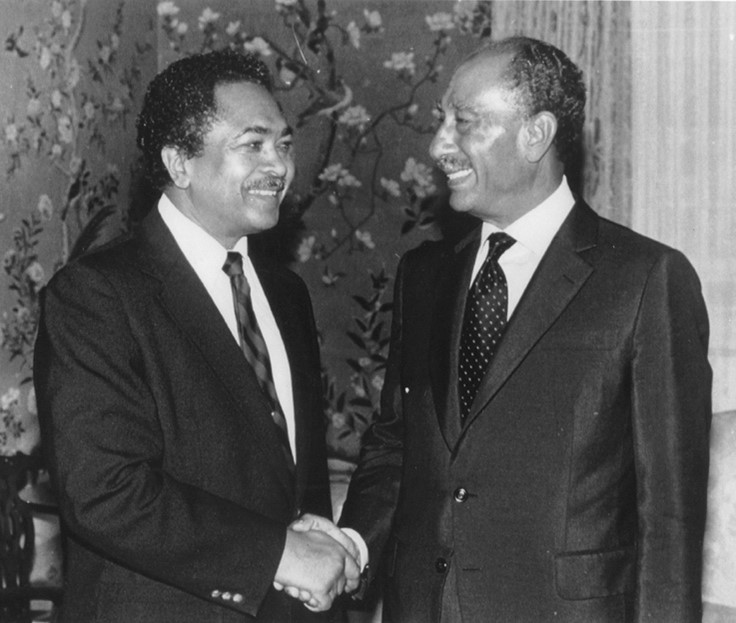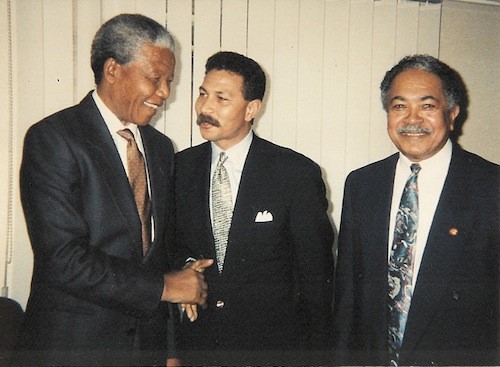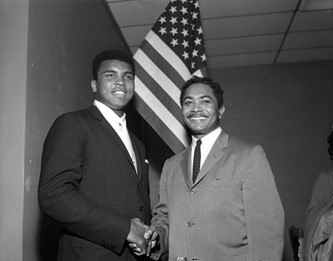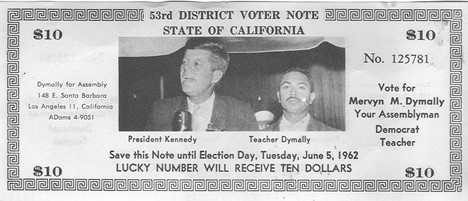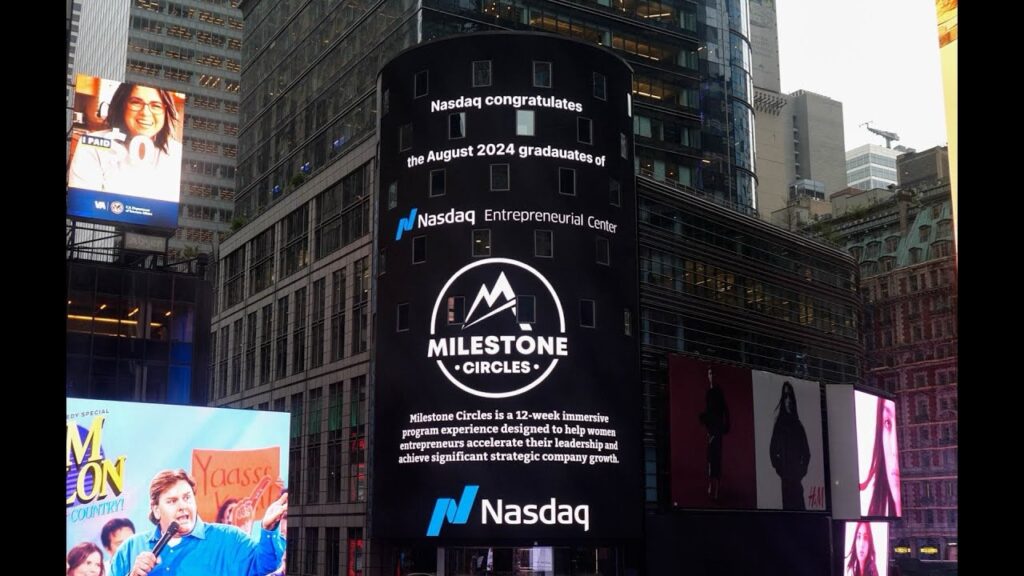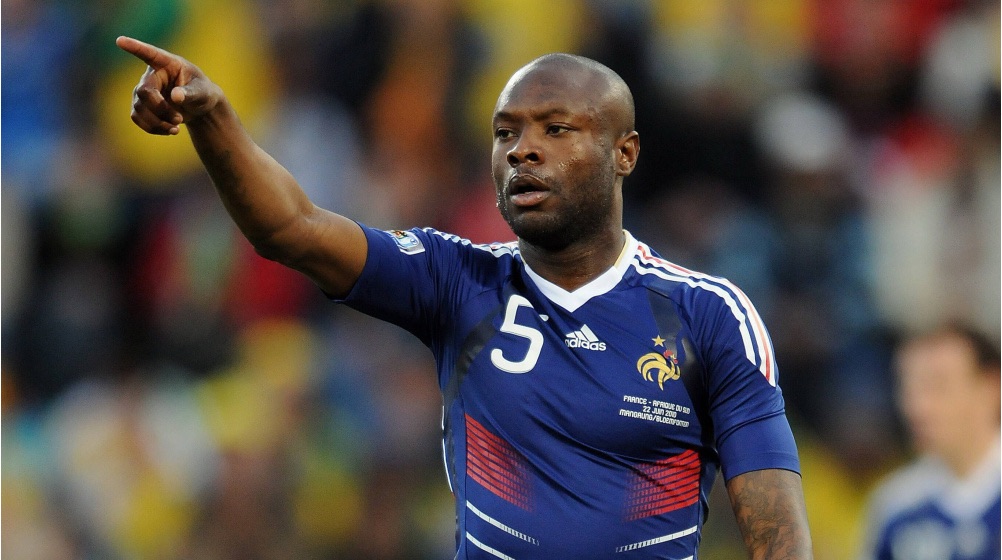Mervyn M. Dymally, a Trinidadian-American was known as the “Father of Black Politics”. Yes. You read that correctly – an immigrant from a third-world country was a pioneer for American Black politics. Once a janitor, and a dishwasher in a restaurant, Mervyn Dymally became the first foreign-black Lt. Governor of the state of California and the first foreign-black United States Congressman. But to me, he was always Uncle Mervyn. One of my grandmother’s younger brothers, my mother’s uncle, and my family’s patriarch. It wasn’t until his passing in October 2012 that I truly understood the magnitude of his political contributions and legacy in America.
I remember writing an essay about my uncle in 5th grade as part of a Black History Month assignment. My teacher did not believe me. She couldn’t believe that an immigrant became a U.S. Congressman. My story had to be confirmed by another Trinidadian-American who happened to work at the middle school I attended at the time.
I remember my American History professor mentioning his name during class one day in my first semester in college in 2002. After class, I walked up to my professor and naively asked, “What does Mervyn Dymally have to do with today’s lesson?” He replied, “He worked with the Caesar Chavez to try to protect farmworkers from losing jobs to automation.
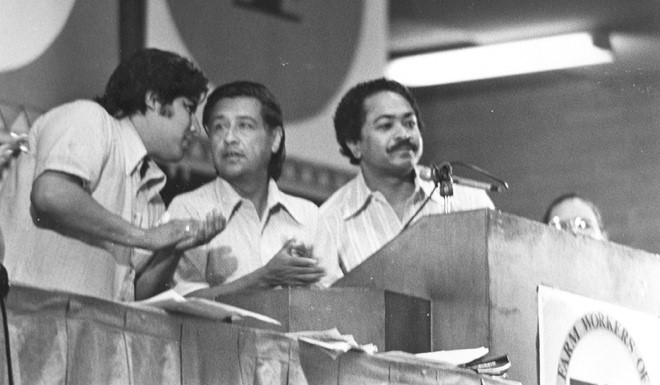
I responded, “Mervyn Dymally is my uncle.” My professor’s eyes widened with astonishment. And this is the typical response I receive whenever I mention his name to those who witnessed his greatness. “The niece of the great Mervyn Dymally”, they would say. Later that same day, I came home and excitedly said, “Mom! My professor was talking about Uncle Mervyn today.” She later phoned my great aunt and with a smile on her face said, “They’re still talking about Uncle Mervyn.”
When I was a girl, he continuously asked me, “What do you want to do with your life?”, “How is school going?”, or “What do you want to study?” Pursuing a good education was his thing. My uncle always told me if I did well, he would help me accomplish all of my dreams. He helped every single one of his siblings, nieces, and nephews come to the U.S. He was able to give them (including my mother) the same opportunity he was afforded. An opportunity to pursue an education and a better life.
You see, if my uncle was known for anything at all, it was known for mentoring many others into their government careers. District attorneys, judges, city councilmen, mayors, senators, and congressmen. He broke barriers, and he made history. Fought for social justice, women’s rights, and equality for all – Blacks, Latinos, and Asians. He shined effortlessly through adversity.
Now, let me tell you about an American success story and a black history story you should know.
Mervyn Malcolm Dymally was born May 12, 1926, in Cedros, a small fishing village in Trinidad & Tobago in the British West Indies. He was born to Andried Richardson and Hamid Andrew Dymally whose family came from India. Dymally was a brother to twelve siblings. As a young boy, Mervyn attended Cedros Government School and graduated from St. Benedict Naparima Secondary School in Trinidad in 1944.
At the age of 19, Mervyn migrated to the U.S. to study journalism at Lincoln University in Jefferson City, Missouri to pursue a journalism career. However, in those days major newspapers did not hire African-American news reporters. Dymally then made his way to California where he earned a B.A. in Education from California State University, Los Angeles in 1954. He continued on to graduate school and earned an M.A. in Government from California State University, Sacramento in 1969, and a Ph.D. in Human Behavior from the United State International University (now Alliant International University) in San Diego in 1978.
Before entering the political arena, Dymally’s career began as a teacher teaching children in the Los Angeles United School District. He lectured at various universities including Central State University, Ohio, and the Charles R. Drew University of Medicine and Science in Los Angeles. While teaching Dymally joined the Young Democrats and served as State Treasurer. In 1960, he became actively involved in the Democratic National Convention in Los Angeles.
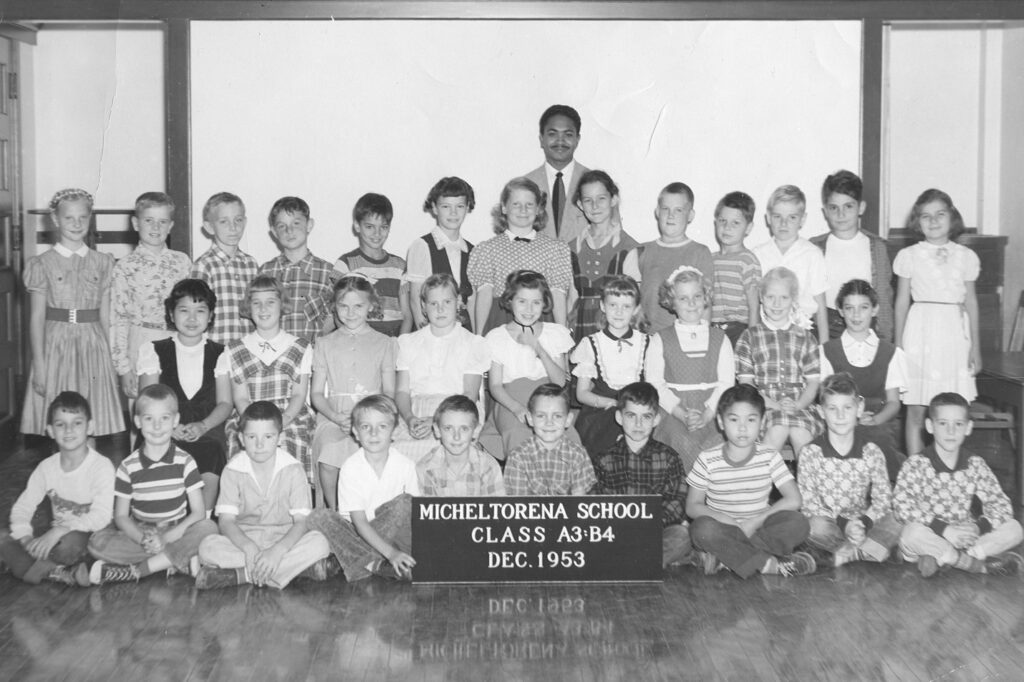
He was later chosen as Field Coordinator for the John F. Kennedy Campaign for President. Two years later, he successfully ran for the State Assembly. In 1966, he became the first African-American to serve in the State Senate. In 1974, Dymally made history when he became the first of two African-American Lieutenant Governors in the United States. Later, he was elected Congressman from South Los Angeles County, making him the first foreign-born Black to be elected as a Member of the U.S. Congress.
Throughout his political career, Dymally authored legislation that gave rights and issued funding. At the state level, he authored the California Community Property Act that gave both spouses equal management and control of community property in marriage, divorce, and death. Dymally also authored legislation that made it mandatory that Black history be taught in California schools making California the first state to enact this law. He also wrote legislation that gave 18-year-olds the right to vote in California and was the deciding vote to decriminalize same-sex relations.
At the federal level, Dymally’s political career focused on foreign affairs. He was the Chair of Foreign Affairs Subcommittee on Africa and International Operations, overseeing all the U.S. Embassies worldwide. He was the spokesperson on human rights and economic development in Africa, the Middle East, and the Caribbean. Dymally also fought for Japanese-Americans’ redress and reparations. Dymally introduced a bill in 1985 recommending monetary reparation of $20,000 for individual Japanese compensation. The bill passed in 1987 and was signed by President Ronald Regan in 1988. President Bill Clinton appointed Dymally to be representative to United Nations in 1991.
Dymally retired from Congress in 1992. And I never knew why. But in a documentary “First of His Kind” directed by Maurice Simmons, which premiered in February 2019 at the Pan African-American Film Festival in Los Angeles, California, I learned that my uncle couldn’t handle racism at the federal level. He couldn’t author legislation how he wanted to either. After departing from Congress, Dymally traveled to Africa, Asia, and the Caribbean as a foreign affairs consultant. He served as Honorary Consul to the Republic of Benin in West Africa and Chief Protocol Officer of the California Assembly.
On October 7, 2012, I learned my uncle had passed and I flew home to California for the funeral. I was amazed at all the dignitaries that attended his service. Governor Jerry Brown, Jesse Jackson, and Madam Vice President Kamala Harris (formerly Attorney General of California).
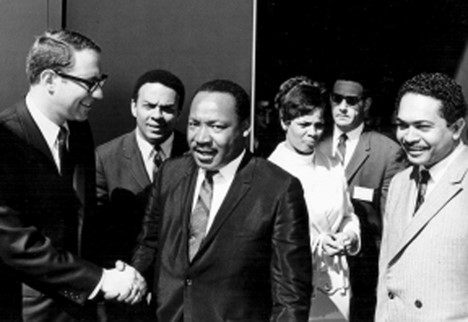
His service was beautiful. Former Governor Jerry Brown proclaimed October 15 Mervyn Dymally Day, and the City of Carson declared May 12 (his birthday) Mervyn Dymally Day as well. I listened as judges, mayors, Senators, and Congressmen tell stories of how “Merv” mentored them into their political careers. With regret, I missed Madam Vice President Kamala Harris’s speech at his memorial service. But I am glad I get to witness her greatness today.
In his remembrance in 2013, Mervyn Dymally High School was named in Los Angeles. In 2013 California State Senator Curren Price authored legislation to rename the California State University (CSU) Dominguez Hills California Political and Economic Institute to Mervyn M. Dymally Political and Economic Institute.
A longtime friend of Mervyn Dymally, Martin Harmon, provided funding for American sculptor Nijel Binns to create not one, but six busts of Mervyn Dymally which are located at the Mervyn M. Dymally School of Nursing at Charles Drew University, Mervyn Dymally High School, CSU Dominguez Hills Mervyn M. Dymally Political and Economical Institute, California African-American Museum (not displayed), California State Capitol (across the hall from the Lt. Governor’s office) and in his home country Bonasse Village, Cedros in Trinidad. I had the honor of visiting my parent’s home country in 2018 to see this beautifully sculpted bust located by the beach and is a short walking distance from my great grandmother’s house.
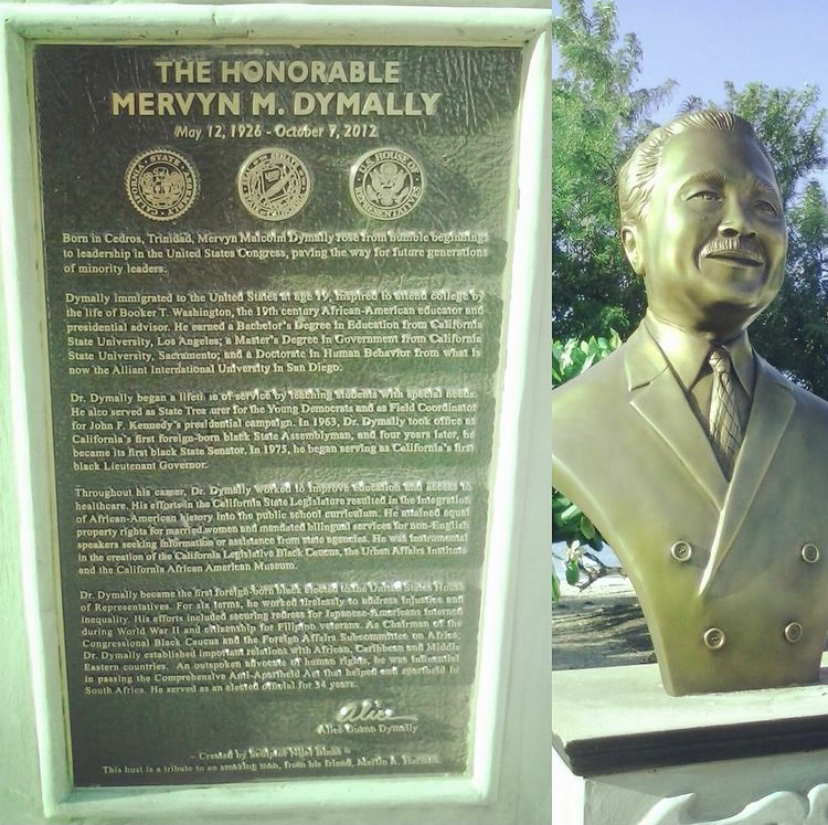
Before Former President Barack Obama, and before Madam Vice President Kamala Harris, there was Mervyn M. Dymally. If not him, then not them. If not him, then not so many others. If not him, then not me. As an American of Indian and Caribbean descent Madam VP Harris had a role model.
Dearest uncle, I wish you were alive today to see what the trail you made led to. I wish you were alive to today to see Madam Vice President Kamala Harris take her place.
Mervyn Malcolm Dymally, I will forever say your name. I will forever tell your story. I am ever so grateful for all that you accomplished and all that you gave our family.
My mother always used you as an example for me in my upbringing. You were exemplary and extraordinary. You set the bar. You set the standard. You were golden. I wouldn’t have the life I live today if you did not do all that you did.
You were truly the first of your kind.
A tribute to my uncle The Honorable Mervyn M. Dymally
All featured photos provided by Lynn Dymally
Camille is a lover of all things skin, curls, music, justice, and wanderlust; oceans and islands are her thing. Her words inspire and her power is her voice. A California native with Trinidadian roots, she has penned personal essays, interviews, and lifestyle pieces for xoNecole, SelfishBabe, Medium, and FEMI magazine. Camille is currently creating a life she loves through words, self-love, fitness, travel, and empowerment.
Follow Us On Social Media!

